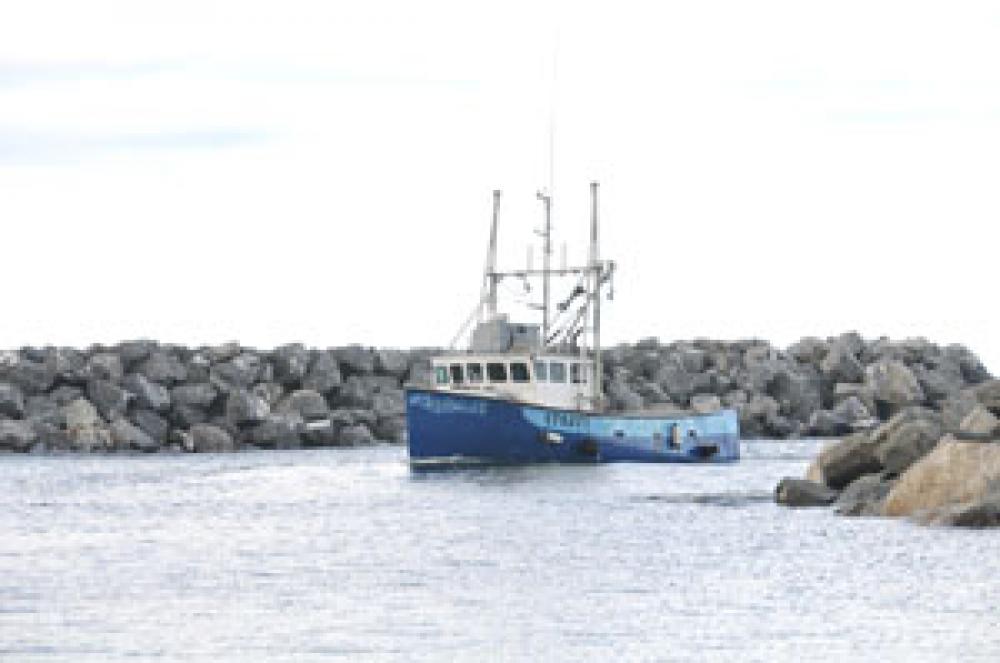
The Implementation of an Electronic Logbook Has Begun to Materialize
Fisheries and Oceans Canada is preparing to take a new step through the implementation of an electronic logbook. Following pilot projects and the establishment of a development standard for applications intended for fishers, the Department hopes that a greater number of fishers will adopt this new technology. Progressively, its use will become mandatory.
Electronic logbooks are software programs (or applications) used aboard vessels to collect information on catches and fishing efforts, such as the number of hours at sea trying to catch a certain species, the number of traps used, and the fishing positions. With these applications, the information collected can be transmitted more quickly to the Department and exchanged more easily between the different data users, such as resource managers, Conservation and Protection agents, and biologists. This method will contribute to sustainable resource management. For fishers, being able to demonstrate a better ability to collect traceability and eco-certification data is also an advantage associated with the use of the electronic logbook.
The applications used may differ from one user to another because they are developed by different companies. However, all applications that will be used from the 2018 fishing season onward will need to meet established standards. In particular, they must ensure the security and integrity of data in order to be approved. In this regard, note that the qualification process administered by the Department has been open since last October.
Two-phase implementation
Two implementation phases are planned. Listening to the needs of the industry, science, and resource management, Fisheries and Oceans Canada, Quebec Region, has identified the fleets below as a priority for Phase I:
- Snow crab fishers from Area 12;
- Lobster fishers from areas 19-20-21 of the Gaspé Peninsula and Area 22 of the Magdalen Islands;
- Herring fishers who use gillnets, areas 16A-16B-16D;
- Pelagic fish fishers holding a permit for bait, areas 15-16;
- Gulf shrimp fishers, Group B from areas 8-9-10-12 (Esquiman, Anticosti, Sept-Îles, and the Estuary) and Area 6.
For all these fleets, except for the lobster fishers in the Gaspé Peninsula, Phase I will take place over two years. That way, fishers will be able to use the electronic logbook as of the 2018 season, on a voluntary basis. However, it will become mandatory as of the 2019 fishing season. The situation is different for lobster fishers in the Gaspé Peninsula because all of them already use the electronic logbook. They will simply have to ensure that the application that they use in 2018 has been qualified by the Department. Fishers and all relevant stakeholders, such as buyers and dockside weighing companies, will be informed of the implications that the implementation of this initiative will have on their operations. Information sessions were already held in fall 2017 and others will be held in winter 2018. All maritime sectors will be affected. The information will also be disseminated through Notices to Fishers or letters.
In addition, the Department is continuing its planning for Phase II, which will make the electronic logbook available to a greater number of fleets. As well, the Quebec Region is studying the possibility of permitting its use as early as 2019 for the following fleets:
- Snow crab fishers in areas 16, 17,12A and 12B;
- Lobster fishers in Area 17B (Anticosti);
- Small seiners of pelagics (mackerel, capelin, herring);
- Mackerel fishers in Area 16;
- Redfish fishers (subject to reopening).
In the medium term, use of the electronic logbook will be extended to most commercial fisheries in Canada. Fisheries and Oceans Canada, Quebec Region, encourages fishers to follow this wave of technological innovation and to remain on the lookout for information sessions that will be offered in their maritime sector.
Refer to the article published on the subject in the June-July 2012 edition of Infoceans
Isabel Calderón
Fisheries Management

The adoption of electronic logbooks by Quebec commercial fishers is expected to be carried out in two phases





